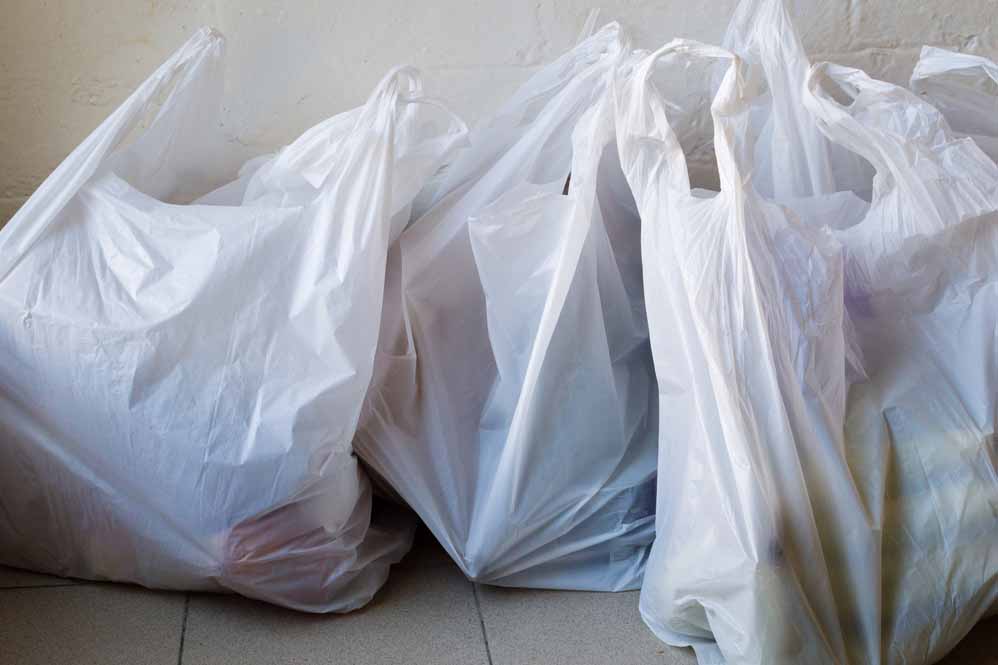
California sent a handful of bills to the governor’s desk, including bills on plastic film and the deposit return system. | Natalie Board/Shutterstock
Several states end their legislative sessions in late summer, including Massachusetts and California, and in the final days several bills relating to plastics recycling passed both legislative chambers.
Significant movement in California
In California, a two-year legislative cycle ended on the last day of August, meaning any bills that did not end up on Gov. Gavin Newsom’s desk are now dead and cannot be rolled over.
Ahead of that deadline, legislators passed several bills tweaking the state’s deposit return system. AB 457 reduces the redemption payment and refund value for wine or distilled spirit beverage containers of less than 24 fluid ounces from 25 cents to 10 cents, beginning Jan. 1, 2025, and also allows certain distributors and beverage manufacturers to make one annual payment of fees to the state.
SB 551 will allow beverage manufacturers to submit a combined report on post-consumer recycled resin usage instead of individual reports, as long as they share rights to the same brands or the products.
Susan Collins, president of the Container Recycling Institute, said SB 551 is “about making the paperwork that’s required work with what happens in the real world.”
AB 2511 extends to 2027 the market development payment program for reclaimers for empty plastic beverage containers, when it would otherwise have expired on July 1.
CRI wrote a letter of support for SB 2511, as Collins said it is an important payment program that needs to be extended every few years. She added that making the program permanent, and perhaps just with language that makes payments contingent on available funding, would be more efficient and cause less stress in the industry.
Newsom signed SB 1113 on Aug. 19. The bill extended the sunset date of recycling pilot projects authorized under the California Beverage Container Recycling and Litter Reduction Act from 2027 to 2034.
CRI submitted a letter on SB 1113 that the organization was “opposed unless amended,” and Collins cited a number of reasons. First, CalRecycle has not reported on the results or data of the pilot programs. CRI asked that the bill be amended to require CalRecycle to submit a report to the legislature, with summaries of each of the pilot programs, the total funding for each program from CalRecycle, the number of containers collected and the overall cost per container recycled in the pilot program.
In addition, the pilot program is part of a larger issue Collins has been bringing attention to for several years: The Beverage Container Recycling Fund technically has allocated more money to various grant programs over the next five years than it has to spend.
“If they actually spend all of the money that is authorized, they would hit a zero balance in about two years,” Collins said. “That is our current challenge, to amplify this issue enough so that the legislature can make some adjustment in the spending levels so that the program doesn’t have a financial crisis.”
Nick Lapis, director of advocacy for Californians Against Waste, said his focus has been on AB 2236 and SB 1053, which seek to “close the loophole” on an existing plastic bag ban by extending it to cover thicker plastic film bags that are currently classed as reusable. Recycling firms have opposed the bills, saying it will remove a huge end market for PCR. The bills passed both legislative chambers and are awaiting a signature from Newsom.
Lapis said he was “not expecting any difficulties” once the bills make it to the governor’s desk, and various groups have been working on the bag ban amendment since 2014.
Mark Murray, executive director of Californians Against Waste, said in a statement that “with the passage of this legislation, an estimated 250 million pounds of plastic film bags will no longer be generated and disposed.”
“In 2016, California voters said no to Plastic Grocery Bags (Prop 67). But a loophole in the law allowed stores to sell ‘thicker plastic bags’ as a ‘reusable bag,'” Murray said. “Today the experience and data are clear: those plastic bags are not being regularly reused – they are not even getting recycled. The experiment failed. It’s time to end it.”
AB 863, which would alter the state’s carpet EPR program to incentivize using recycled carpet fiber instead of recycled PET bottles, also went to Newsom’s desk.
Looking forward, Lapis said, “we have a lot of unfinished business from this year.”
“I still believe there is a lot more work to be done on dine-in and reuse,” he said.
Several bills stalled out in California, including AB 2916, which would have banned marine EPS foam; AB 2761, which would have banned all plastic packaging containing PFAS or PVC; and SB 1231, which would have altered SB 54 to allow producers to petition to have material considered recyclable instead of having the state unilaterally determine recyclability.
Legislative activity elsewhere in the nation
Looking briefly at other states that are wrapping up, in Massachusetts, bills on recycling access, EPR and several single-use plastic bans all failed.
A bill in North Carolina, S 725, that would have defined chemical recycling as recycling, died in committee.
Other states still have several months left in their legislative sessions, including Michigan, New Jersey, Ohio and Pennsylvania.
A version of this story appeared in Resource Recycling News on Sept. 10.

